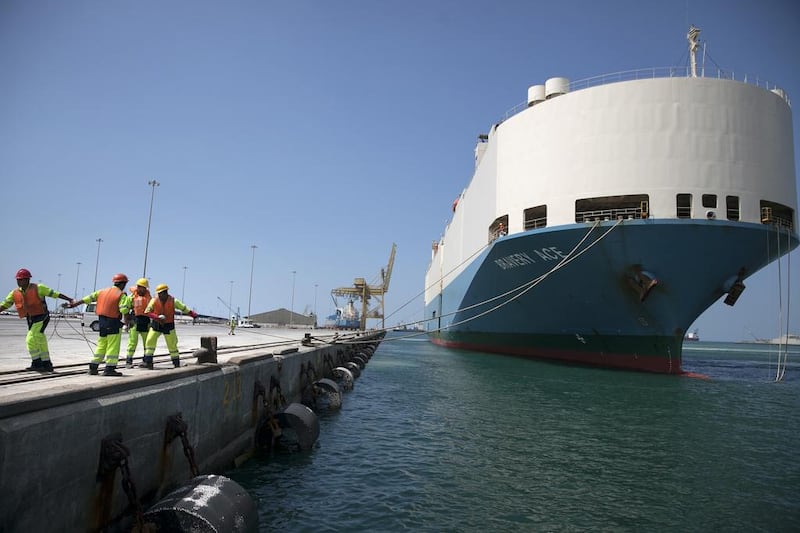Container volumes handled by Khalifa Port Container Terminal increased by 41 per cent in the first seven months of this year, Abu Dhabi Ports said yesterday.
The US$7 billion terminal, which was inaugurated in December 2012, handled more than 772,000 container units between January and the end of July, compared with 549,000 containers in the same period last year.
The speed with which containers were handled also improved, which has led to it being used for more routes.
Abu Dhabi Ports said it now has more than 100 direct connections to global ports linked to more than 36 shipping lines.
The amount of general and bulk cargo handled also increased by 21 per cent to 8.71 million freight tonnes, and the transfer of roll-on, roll-off ferries to Khalifa Port from Zayed Port meant that the volume of imported vehicles also increased by 11 per cent. It now has the capacity to handle 350,000 units per year.
Meanwhile, lease deals have been signed with 19 new companies that have taken space in the neighbouring Khalifa Industrial Zone (Kizad), totalling 1 million square metres of new space.
Companies that have agreed to deals include Schmidt ME Logistics, Bin Ali Safecare Medical and Siddco Group.
Mohamed Juma Al Shamisi, the chief executive of Abu Dhabi Ports, said: “Our ability to handle record loads across the cargo and transportation market has been facilitated by our commitment to implementing operational efficiencies and adopting next-generation technologies.”
Even though Abu Dhabi’s container terminal traffic has spiked, worldwide growth in container terminal traffic is expected to slow to 2 to 3 per cent this year because of weakening trade between China and the European Union.
Last month, the G6 Alliance of major container shippers announced that it was cutting a number of sailings that were due to be made in October in response to slowing demand.
mfahy@thenational.ae
Follow The National's Business section on Twitter






